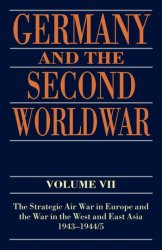Augustine of Ancona’s Summa de ecclesiastica potestate is distinctly a theological treatise, relying primarily on arguments from the Scripture, the church fathers, and canon law. Nevertheless, it is of interest for political philosophy in two ways: for its recurrent engagement with philosophical themes, especially natural law, and for its outline of a global political structure dependent on one supreme power.
Augustine considers the pope’s power first in itself (qq 1-34), then in relation to the acts of temporal and spiritual dominion or lordship (dominium) for which it is ordained (qq 35-75), and finally in relation to the graded perfections of status resulting from such power (qq 76-112). All ultimate earthly authority is claimed for the papacy. The world as a whole (tota machina mundialis) is a single governmental unit (principatus) and should have a single ruler (q 22, a 3; q 49, a 2; q 60, a 4). The pope is the intermediate between God and Christians (q 44, a. 1; cf. q 1, aa 1, 3-9), and, since Christ by his passion has merited judicial power over every creature, the pope’s authority extends to pagans and Jews as well (qq 23-24). He can correct, depose, or institute (without the request or consent of others) the rulers of any realm (q 46, aa 1-3). Anyone suffering unjustly may appeal to him from the sentence of any man whatever, whether king or emperor (q 45, a 3). The pope could not relinquish such power even if he wished to, for just as God cannot deny himself to be lord of all, so his vicar cannot exempt anyone from papal jurisdiction, cannot deny that he has universal dominium. To do so would be to fall into Manichaeism (q 61, aa 2-3). Accordingly, all rights are derived from God to men through the pope, and it is principally for him to maintain others in these derived rights (q 1, aa 3, 7-8; qq 44-46; q75, a 1).
Virtually all recent discussion of the Summa, reviewed by Walsh (2000), has been sparked by Wilks’ 1964 monograph, The Problem of Sovereignty in the Later Middle Ages: The Papal Monarchy with Augustinus Triumphus and the Publicists. On the basis of theses such as those summarized above, Wilks argued that Augustine’s account of papal power amounted to a theory of ‘‘true sovereignty” (287). Critics of Wilks have sometimes charged him with anachronism in applying a modern concept, sovereignty, to a medieval author and have pointed to passages in the Summa, which seem to show that for Augustine the pope’s authority was not as absolute as Wilks made it appear.
There are indeed important qualifying passages, as we shall see and as Wilks himself recognized, but it is not always clear that these are consistent with the maximalist theses above (Wilks thought not). Even if they are, Augustine’s claim that only papal authority comes immediately from God places the pope’s power on a distinctly higher plane than that of any other mortal. Considered in this light, the charge of anachronism seems ill founded.
The scholastic quaestio form of the Summa required discussion of positions counter to the one defended by the author. Augustine’s discussion of claims to authority made for councils of the whole church was sufficiently substantial to make his work an important resource in the conciliar period (Walsh 1991). His account of papal authority in relation to natural law is complex. The pope should not be obeyed if he commands anything contrary to natural or divine law (q 22, a 1). Consequently, he cannot justly deprive pagans of political authority, although he can punish them for acting against natural law (q 23, aa 3-4); he cannot free slaves (q 22, a 5) or arbitrarily take one person’s property and give it to another (q 54, a 4, ad 1). Yet a papal precept binds more than the law of nature, since it binds not only potentially but also actually, not only universally but also particularly. Moreover, the ‘‘impressing’’ of the power of binding in the pope in Christ’s committal of the church to Peter (Matt. 16:18) is more unfailing (infallibilior) than the impression in our minds of the law of nature, also made by God but only as a habit, which can fall into evil in its actual exercise (q 63, a 1; cf. q 60, a 1). On some matters, Augustine counsels restraint in the pope’s exercise of his unlimited power. If the pope orders one thing and the emperor another, the pope is to be obeyed, not the emperor. However, since all power is from God, the pope ought to maintain and govern - not abolish or undermine - secular rulers and kings (q 22, a 3).
The most fundamental apparent qualification of Augustine’s papal absolutism stems from his distinction between the perfection ofthe papal status and the possible imperfection of an individual pope (q 101, a 3). Augustine, who had been distressed at the election of Clement V, held that a faulty pope was subject to censure by any Christian (q 7, a 1). Further, a pope who fell into heresy was spiritually dead, ipso facto ceased to be pope, and could be declared deposed by others, most suitably by a general council (q 5, aa 1, 6; cp. q 22, a 1). The practical import of Augustine’s acceptance of papal heresy as a possibility is unclear, however, since there is no formal procedure in his system for determining the actual occurrence of such an event.




 World History
World History









